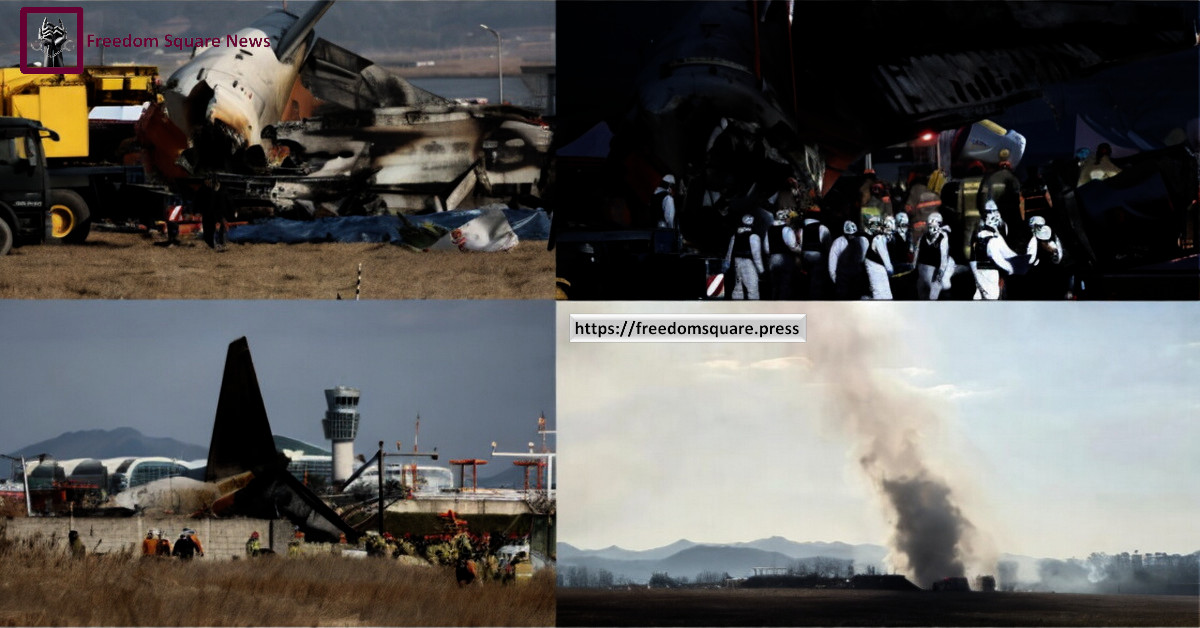A Devastating Tragedy Strikes Muan International Airport
On December 29, 2024, a devastating aviation tragedy occurred in South Korea when Jeju Air Flight 2216, a Boeing 737-800, crashed during its approach to Muan International Airport. The aircraft, en route from Bangkok, Thailand, to Muan, South Korea, was carrying 175 passengers and six crew members. Tragically, 179 of the 181 individuals on board lost their lives, making it the deadliest aviation accident in South Korea’s history.
Unraveling the Details of the Crash
The incident occurred during the aircraft’s second landing attempt at Muan International Airport. Reports indicate that the plane encountered a bird strike shortly before the crash, which may have led to a malfunction in the landing gear. As a result, the aircraft was unable to deploy its landing gear properly, causing it to skid off the runway and collide with a concrete barrier. The collision resulted in a catastrophic fire, engulfing the plane in flames.
Casualties and Survivors: Among the 175 passengers, the majority were South Korean nationals, with two Thai nationals also on board. The youngest victim was a three-year-old child. The six crew members included four flight attendants and two pilots. Miraculously, two flight attendants survived the crash, sustaining moderate to severe injuries. They were rescued from the rear of the aircraft and received medical treatment at hospitals in Mokpo before being transferred to a hospital in Seoul.
Investigation and Response: South Korean authorities have initiated a thorough investigation into the cause of the crash. The flight data recorders have been recovered and are being analyzed to determine the sequence of events leading up to the disaster. Initial reports suggest that a bird strike may have contributed to the landing gear failure, but this is yet to be confirmed.
“In response to the tragedy, Jeju Air has expressed deep condolences to the families of the victims and pledged full cooperation with the investigation. The airline has activated its emergency protocols to assist the survivors and their families.”
Impact and Reactions: This incident marks the deadliest air disaster in South Korea since the Korean Air crash in 1997. The nation has declared a period of national mourning, and authorities are providing support to the victims’ families. International leaders have also expressed their condolences, highlighting the global impact of the tragedy.
As investigations continue, the aviation community remains focused on uncovering the factors that led to this catastrophic event, with the aim of preventing similar incidents in the future. The lessons learned from this tragedy could lead to improved safety measures and protocols worldwide.




